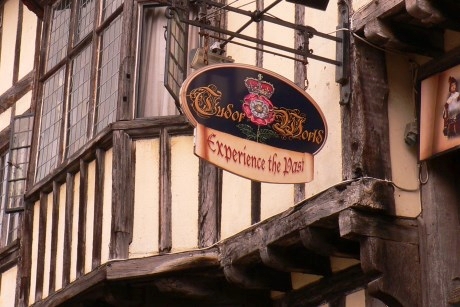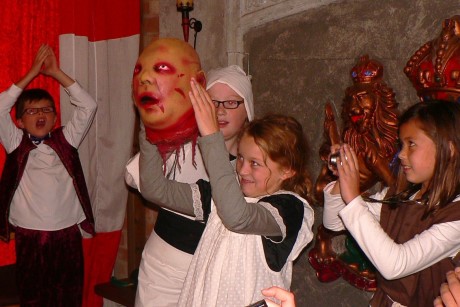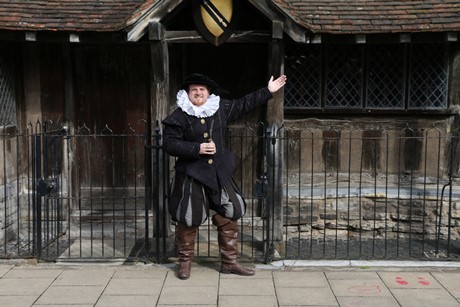
Located in Stratford upon Avon, in a Grade II listed Tudor building, is Tudor World, where pupils studying History can get involved in hands-on, engaging workshops and activities.
The Tudor era began when Henry VII (Henry Tudor) became King of England in 1485 after he defeated Richard III at the Battle of Bosworth.
The Tudor reign continued until 1603 when Elizabeth I died.
The Tudor period saw three kings, Henry VII, Henry VIII and Edward VI, and three queens take to the throne: Lady Jane Grey, the nine day queen; and Mary Tudor and Elizabeth Tudor, Henry VIII’s daughters. Of course, there were others who became queens when they married into the throne, such as Henry VIII’s six wives Catherine of Aragon, Anne Boleyn, Jane Seymour, Anne of Cleves, Catherine Howard and Katherine Parr.
The Tudor World museum is dedicated to teaching visitors about the Tudors, from the kings and queens mentioned above, to the gory fates and high treason of the time.
School Travel Organiser looks at why a trip to Tudor World could be a memorable experience for pupils between Key Stages 1 and 3.

Pictured: School pupils taking part in a Tudor workshop.
Tudor Day
There are various options for school trips, including specialised days that look at different aspects of Tudor life.
The first option for school trips is a Tudor Day, where pupils are invited to learn about the Tudors whilst exploring the museum, theatre area and workshop room.
There are several workshops involved in Tudor Day: in workshop one, children learn about groundlings, food, the role of peasants to kings, and plays. They will also discover what it was like to be in the army of Henry VIII and the structure of the army – who was on the front line and who rode in on horseback.
Workshop two during Tudor Day will look at crime and punishment. Children will get involved in a trial of a traitor, which includes role play to unearth whether they are guilty or innocent. Pupils will take a look at Tudor punishments and executions such as the stocks and pillories, the ducking stool, a scold’s bridal, and beheading.
The third activity will be a tour of the museum where schools can discover what life was like during Shakespeare’s time and learn about the local history of Shrieve’s House, which belonged to an archer under Henry VIII’s reign. Children will discover the throne room, what it was like in a Tudor school, and the plague.
The day will be completed with a guided tour of Stratford upon Avon with a costumed guide, where schools can find out more about Shakespeare’s life and work and the buildings and life in the Tudor Period.

Pictured: Costumed guide.
Shakespeare Day, Crime and Punishment Day and Health and Medicine Day
With a similar itinerary to Tudor Day, schools can arrange a Crime and Punishment Day, a Shakespeare Day and a Health and Medicine Day. These all include a similar layout but are tailored more specifically towards each topic.
The first thing pupils will learn on a Shakespeare Day trip is what theatre was like during Shakespearean times. This will be followed by an activity that gets the pupils involved in Shakespearean language by writing and performing a sonnet.
The Crime and Punishment Day teaches pupils what it was like to be in an Elizabethan gaol, what people could be convicted of and what the punishments were. The second part of the day will include a workshop where pupils can take part in the role play of the trial of a ‘spy’ whose fate in Tudor times would have been execution.
The Health and Medicine Day allows students to find out about the belief in the ‘humours’ that regulated the body and some of the more unusual cures that were believed to cure the plague. Schools will then move on to learn about the barber surgeons and their roles on both land and sea.
For Key Stage 3 pupils, the topic of Development of Society in Britain can be arranged, which looks at all matters of Tudor life in comparison to other eras and present day.
All of these workshop days are also completed with a tour of the museum and a tour of Stratford upon Avon with an actor dressed as William Shakespeare.
For more information visit www.tudorworld.com.










